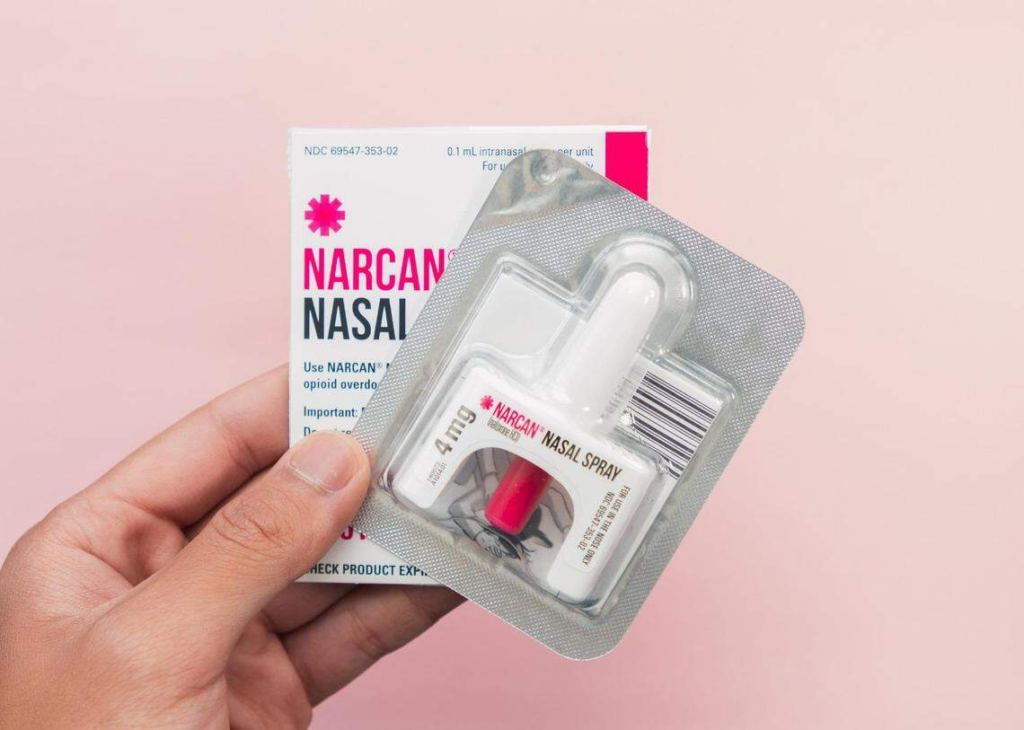Read the original article on the Raleigh News & Observer website (may require subscription).



Fentanyl Victims Network of North Carolina
Stronger Together! Grassroots campaign against illicit fentanyl in NC IRS recognized 501(c)(3) non-profit public charity EIN: 88-3921380
More than 99% of students were not involved in a reportable crime on campus, said Michael Maher, chief accountability officer for the North Carolina Department of Public Instruction. Most schools reported only zero to five criminal offenses at their school last year, he said.
Criminal offenses went down again in North Carolina schools during the 2024-25 school year, with another significant drop in offenses for weapon possession, new data shows.
The North Carolina Department of Public Instruction released the latest public school crime statistics during the State Board of Education meeting on Wednesday.
The drop in criminal offenses reported reflects ongoing trends, but so does a continued rise in offenses for drug possession.
Total offenses dropped from 12,212 the year before to 11,470 offenses last year, according to the North Carolina Department of Public Instruction, which released the data Wednesday afternoon.
Continue reading “More drugs, fewer weapons found in schools, crime data shows”Read the original article on the Raleigh News & Observer website.
One hundred and seventy babies, kids and teens in North Carolina died after fentanyl exposure between 2015 and 2024, new state data shows.
Infants, children younger than 5 and teenagers aged 13 to 17 were the most likely to die after fentanyl exposure here during the past decade, according to updated data from the Office of the Chief Medical Examiner.
The data, focused on fentanyl-positive deaths between 2015 and 2024, was presented by the state Office of the Chief Medical Examiner to a committee of the state Child Fatality Task Force last week.
Fentanyl is extremely dangerous because its residue is easy to ingest, and drug paraphernalia like needles or spoon often contains enough fentanyl to kill a small child. In one toddler death cited by the medical examiner’s office, a 1-year-old was exposed to fentanyl left on a cotton ball next to the bed where the mother and child slept.
“Illicit fentanyl really is one of the substances that is predominantly toxic to the pediatric population,” Sandra Bishop-Freeman, chief toxicologist and forensic laboratory director at the state Office of the Chief Medical Examiner, told the Charlotte Observer.

Among teenagers, accidental ingestion often comes via other drugs — even borrowing what a teen thinks is a Tylenol from a classmate could lead to an overdose from a laced pill. In a case cited by the medical examiner’s office, a 16-year-old who died of fentanyl overdose took what they thought was Xanax at a party.
More 17-year-olds died than any other group among minors between 2015 and 2024, with 52 lives lost. Infants less than 6 months old had the second-highest death toll, with the total reaching 24.
Among racial groups, American Indian and Black residents experienced the highest number of pediatric fentanyl-positive deaths in the state, the data says.
And loss of life overall in North Carolina is much higher than a decade ago — growing from 243 deaths in 2015 to 1,954 in 2024.

There is some good news: Despite the number of fentanyl-related deaths remaining elevated compared to decades past, the rate has begun to slow over the past several years.
Fentanyl deaths among all age groups fell 26% statewide in October 2025 compared to the previous year, with deaths in Mecklenburg County down to 142 from 192.
Overdose deaths have been declining the past two years, CDC data released Wednesday shows. North Carolina’s fentanyl overdose rate among all age groups fell by more than 30% between August 2024 and 2025.
Increased access to preventatives, such as the overdose-reversing nasal spray naloxone, could be helping slow overdose death trends.

A multifaceted prevention strategy has likely helped contributed to the slowdown in overdose deaths in North Carolina, according to Kella Hatcher, executive director of the NC Child Fatality Task Force. Her group has been studying pediatric overdoses for several years.
“You have to keep working on a combination of efforts to make progress, and that’s the case with many [preventable] causes of death,” Hatcher said.
A 2025 Prevention Block Grant funded several primary prevention programs, including youth education efforts that served close to 9,000 during the year. Another program distributed more than 11,000 lock boxes and 15,000 medication disposal kits, according to Tuesday’s presentation.
Opioid settlement dollars are also funding prevention work in many North Carolina counties. The state is receiving $1.4 billion as part of national settlements with opioid companies, money aimed at bringing resources to communities harmed by the opioid epidemic.
The medical examiner’s office will continue to share data with state and county agencies focused on helping curb the preventable childhood deaths, toxicologist Bishop-Freeman said.
“Despite the trends possibly plateauing, these pediatric deaths are still too many,” Bishop-Freeman said.
Read the original article and watch the video on the WRAL News website.
A Raleigh mom is raising awareness about drug overdose risks by gifting skateboards to children across the Triangle area. Her mission not only remembers her son but also educates families on the dangers of substance abuse.
Susan Plattner’s son, Caleb Mehlman, spent most of his free time at Marsh Creek Skatepark in Raleigh. She said skateboarding was second nature for her son.
“At the age of three, I had a scooter, and he figured out how to push the handle down and turn it into a skateboard, and that was it,” Plattner said. “He was skating passionately ever since then.”
Continue reading “Raleigh mom spreads awareness of drug overdose risk by gifting skateboards to Triangle kids”DURHAM, N.C. (WNCN) — A man has been arrested, and a kilo of the highly potent, synthetic opioid fentanyl has been seized by the Durham County Sheriff’s Office.
On Thursday, Jerrad Alexander McPherson, 28, was seen acting suspiciously in what appeared to be the sale and distribution of drugs, according to investigators with the sheriff’s narcotics unit.
Detective S. Dixon attempted a traffic stop of the maroon Buick Encore McPherson was driving, at which time warrants state McPherson drove recklessly and more than 15 mph over the posted limit in the area of Hillsborough and Colemill roads in northwest Durham.
During a short pursuit, the sheriff’s office said McPherson threw items out of the car before coming to a stop. The items thrown from the car were found to be a stolen 9mm semiautomatic pistol and a “small amount of narcotics,” according to the sheriff’s office.
After the traffic stop, a warrant was granted to search McPherson’s home, where a kilo of fentanyl was found and seized.

At the time of his arrest, McPherson was on federal probation and had been previously convicted on drug possession charges, according to his warrant.
Following his Thursday arrest, he was taken to the Durham County jail and given a $2.5 million bond. His charges include:
The sheriff’s office said one kilo is enough to kill about 500,000 people, which is more than the population of the entire City of Durham.
“To remove a kilo of fentanyl off our streets potentially saves 500,000 lives because fentanyl is so potent,” Durham County Sheriff Clarence Birkhead told CBS 17. “An amount that’s the size of a pinhead could kill an individual.”
From January to August 2025, the state reported 44 fentanyl-positive deaths in Durham County. Though progress is being made, the county has lost more than 500 people due to opioids since 2013.
“Hopefully now, we’ll put together a good case and present it to the district attorney or to the U.S. attorney’s office because this is trafficking,” Birkhead said. “We’ll try to prosecute this individual to the fullest extent of the law.”
That’s a welcomed goal for family members of local victims.
Read the article and watch the video on the WRAL TV News website.
Raleigh police arrested mother Vinus Humphreys and her boyfriend Tyrone Bannerman on felony child abuse charges after her twin 22-month-old children were exposed to fentanyl inside their apartment.
Raleigh police arrested a mother and her boyfriend for child abuse after they said her twin toddlers were exposed to fentanyl inside their apartment.
Vinus Humphreys, 25, and Tyrone Bannerman, 28, are both facing two counts of felony child abuse. Raleigh police responded after 8 p.m. Monday to a home on Lake Hills Drive to a report of an unresponsive child.
EMS was already on scene providing medical aid to a 22-month-old child when, shortly after, the child’s twin also became unresponsive.
First responders administered Narcan to both children and took them to the hospital for further treatment. Their condition is considered stable and are expected to survive.
Narcan is is a medicine that can help people who are overdosing on an opioid.
Raleigh police found drugs, drug paraphernalia and a firearm inside the home, resulting in more charges for Bannerman, including:
The incident raised concerns for Barb Walsh, the executive director of the Fentanyl Victims Network of North Carolina. The number of children younger than the age of 5 dying from fentanyl is on the rise. According to the North Carolina Office of the Medical Examiner, 29 children younger than 5 year old died from fentanyl between 2017 and 2022, with 72% of those deaths occurring in 2021 and 2022.
“It breaks my heart,” Walsh said. “I hate to use the word overdosing with a two-year-old because they didn’t know what they were taking.”
Walsh lost her 24-year-old daughter in 2021 to an unintentional fentanyl exposure when a toxic amount of it was in a water bottle. It’s why she’s so involved in advocating for change so other families don’t have to experience this pain.
“We’re making progress,” Walsh said. “That’s all we can hope for.”
Earlier this year, Gov. Josh Stein signed a new law creating new criminal offenses for exposing a child to a controlled substance.
Walsh said it goes much further than the laws in place now.
“They get child abuse or child neglect,” Walsh said. “The new law will be a felony even if they ingest it and are OK. That will save someone else’s life.”
Walsh said the new law is a lot more specific compared to the broader charge of child abuse. However, Humphreys and Bannerman won’t be charged under the new law. While Stein signed it into law in July, it won’t become effective until Dec. 1, which is exactly four weeks after Humphreys’ twins were exposed to fentanyl.
“People who endanger a child with a harmful substance like fentanyl should be held accountable for their actions,” Walsh said. “It will lead to lives being saved. That’s the goal. We want lives saved.”
Humphreys and Bannerman are due in court for their first appearances Wednesday afternoon in Wake County. Authorities are holding both of them without bond.

Read the original article and watch the video on the WRAL News website.
Delesha Carpenter’s personal tragedy has fueled her mission to combat opioid overdoses through increased naloxone access. Her new website with UNC maps naloxone availability across NC’s 100 counties.
Delesha Carpenter began her career as a researcher focused on pediatrics. A little over seven years ago, her path took an unexpected turn following the deaths of two close friends.
“A lot of people who get into this field, it’s personal,” Carpenter said. “I lost two friends within two weeks of each other to opioid overdoses. That really inspired me to increase access to naloxone.”
The researcher and professor with the UNC Eshelman School of Pharmacy recently launched NalxoneNearMe.org. The website features an interactive map of all 100 North Carolina counties, rating them based on the number of naloxone distribution services available.
Durham County is tied with Mecklenburg County as the highest rated counties on the map with a score of 88. Wake County wasn’t far behind with a score of 77.
Carpenter told WRAL the Naloxone Availability Scores are based on the level of availability of no-cost naloxone and pharmacies that sell naloxone in each county.
Naloxone distribution resources are categorized into 14 types, including syringe service programs, EMS, harm reduction organizations, health departments, pharmacies and healthcare providers.
“The highest score a county can receive is 100, which would mean that all 14 naloxone sources included in the Naloxone Availability Score are present in that county,” Carpenter explained. “If a county had one harm reduction program in the county, they would get the same amount of ‘credit’ toward the score as a county that had two or three reduction programs.”
Increased naloxone use and availability are among the efforts researchers say have contributed to a reduction in opioid overdose deaths in recent years.
WRAL investigated how the medication works when taking viewers inside the human body to reveal the way naloxone fights against opioid overdoses.
The North Carolina Department of Health and Human Services reported more than 41,500 North Carolinians died from overdoses between 2000-2023.
As of the latest data available from 2024, overdose deaths decreased by approximately 32% from the year prior.
“One thing is everybody’s life is worth saving. It is important to carry naloxone, especially if you’re going to be in situations where people are going to be using drugs, you never know what is in the drugs that you’re using,” Carpenter said.
Carpenter said increasing the availability of medications for opioid use, such as buprenorphine and methadone, would also help reduce overdose fatalities.
“Other resources that people should be aware of, and one that’s linked on our website, is Naloxone Saves. Ours tells you what types of sources are available, but you can go to the Naloxone Saves website and find the actual pharmacies that carry and stock naloxone, or find your health department and whether it’s distributing naloxone,” Carpenter added.
Naloxone will not harm someone who hasn’t taken an opioid, so it is recommended even when it is unclear what kind of drug a person has taken.
More than one dose may be needed because some opioids, like fentanyl, can take a stronger hold on the opioid receptors.
Read the original article on the Raleigh News & Observer website.

A woman has been charged in connection with the fentanyl overdose death of a man she allegedly sold drugs to earlier this year, the Wake County Sheriff’s Office said.
On March 29, deputies responded to a home on Panther Lake Road in the southern part of Wake County for a death investigation and found 39-year-old Matthew Godbold unresponsive, according to a news release. The initial investigation pointed to a possible overdose.
Evidence submitted to the Wake County Bureau of Forensic Services tested positive for fentanyl, the release stated.
Deputies determined Lauren Tasha Olsen, 37, had sold drugs to Godbold that led to his death. She was charged Monday with aggravated death by distribution and with felony sell/deliver a schedule II controlled substance, according to the release.
In 2017, Olsen was convicted of attempted drug trafficking of a schedule I controlled substance, court records show. She was sentenced to between 2 years and 1 month and 3 years and 6 months in jail, with her parole ending in May 2020.
Godbold’s death comes as the number of fentanyl and other overdose deaths in North Carolina has declined.
There were 259 suspected overdose deaths in June 2025 compared to 275 in June 2024, according to the N.C. Office of the Chief Medical Examiner. There was an 8% decrease in such deaths year to date (1,541) compared to January to August 2024 (1,666).
There were 175 fentanyl-positive deaths in April 2025 compared to 204 in April 2024. There was a 28% decrease in such deaths year to date (588) compared to the same time period in 2024 (822), the medical examiner’s office reported.
Read the original article on the WRAL TV5 website.
A woman was arrested Monday and charged with the fatal overdose of a man earlier this year.

A woman was arrested Monday and charged with the fatal overdose of a man earlier this year.
On March 29, the Wake County Sheriff’s deputies responded to a death investigation at a home off Panther Lake Road. They found 39-year-old Matthew Godbold unresponsive inside the home.
Their initial investigation indicated that the cause of death was a possible overdose.
Officials collected and sent evidence to the Wake County Bureau of Forensic Services for testing, which determined that substances found at the scene tested positive for fentanyl.
Deputies determined that 37-year-old Lauren Olsen sold drugs to Godbold that ultimately led to his death. The WCSO did not provide details as to how they connected Olsen to him.
On Monday evening, deputies arrested Olsen and charged her with aggravated death by distribution and felony sell/deliver a Schedule II controlled substance. She is scheduled to appear in court for the first time for this offense Tuesday afternoon.
According to court records, Olsen has a previous arrest history related to possessing drugs and drug paraphernalia from other counties.
Fentanyl is a synthetic opioid. When manufactured by pharmaceutical companies and approved by the FDA, it can be safely used to treat patients in severe pain. The synthetic fentanyl leading to many overdose deaths is made in unregulated labs, pushed by drug cartels, and put in various drugs as a cheap way to produce extremely strong substances.
The fentanyl crisis continues to devastate families across North Carolina, even as overdose deaths decline. Back in late May, Gov. Josh Stein called for a special unit to investigate fentanyl trafficking across the state.